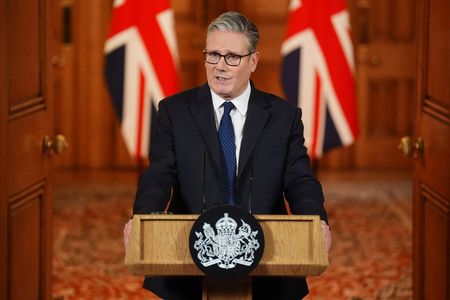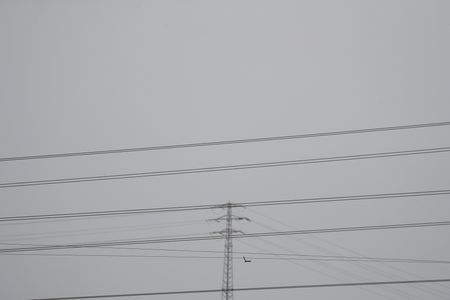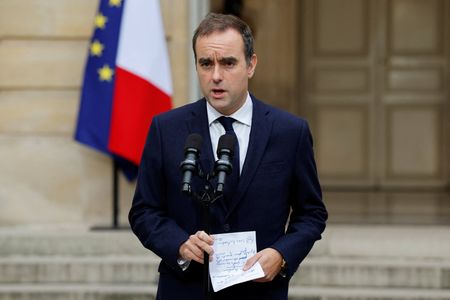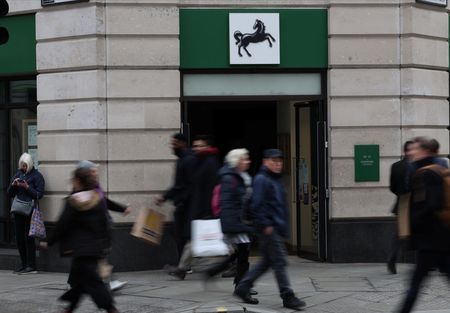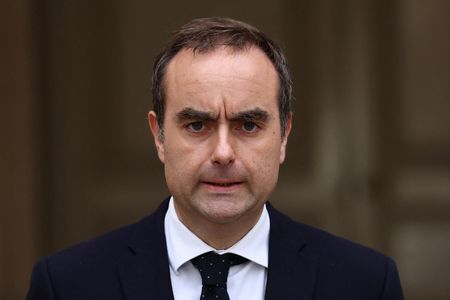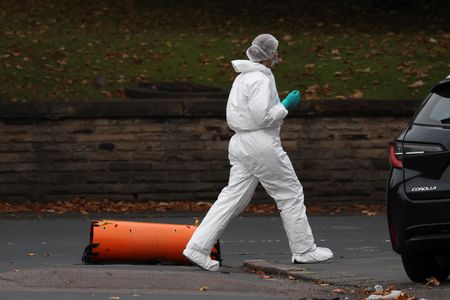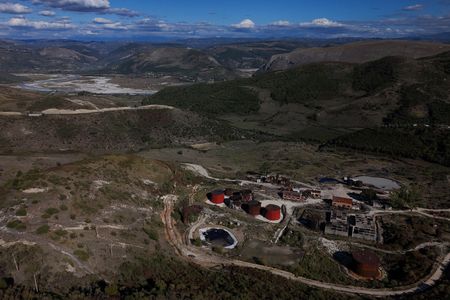By Michael Holden
LONDON (Reuters) -Prime Minister Keir Starmer rejected on Wednesday accusations that Britain tried to appease China by dropping a prosecution against two men accused of spying for Beijing, saying the decision was based on legal constraints, not political motives.
In an unexpected move, British prosecutors last month dropped charges against the men weeks before they were due to go on trial. The men had been accused of passing politically sensitive information to a Chinese intelligence agent.
Christopher Cash, 30, a former director of the China Research Group think tank, and Christopher Berry, 33, who worked as a researcher for a senior lawmaker, had denied the accusations.
UK ACCUSED OF NOT WANTING TO UPSET CHINA
The decision to drop the case led to accusations from opposition lawmakers that the government had collapsed the trial because it did not want to upset Beijing, with whom it is trying to improve economic relations.
It has also led to a rare, critical intervention from Britain’s Director of Public Prosecutions (DPP) Stephen Parkinson. He said on Tuesday prosecutors had sought necessary evidence from the government for months that would show China as a threat to Britain, but that this had not been forthcoming.
Visiting India, Starmer reiterated that the government was disappointed the prosecution had not gone ahead and said if there was any blame, it rested with the policy towards China of the previous, Conservative government.
“The position is very clear that the trial would have had to take place on the basis of the situation as it was at the time under the previous government,” he said.
“So whatever their position was, was the only position that could be presented at trial … Now that’s not a political to and fro, that’s a matter of law.”
China’s embassy in London said in a statement: “We have emphasised from the outset that the allegation about China instructing the relevant British individuals to ‘steal British intelligence’ is entirely fabricated and malicious slander, which we firmly reject.”
“We urge certain individuals in the UK to stop this kind of self-staged anti-China political farce.”
WHAT IS AN ENEMY?
The men were charged under the 1911 Official Secrets Act which specifies it is a crime to communicate any documents which might be useful to “an enemy”.
In a separate case last year involving a team of Bulgarians later found guilty of spying for Russia, London’s Court of Appeal determined that an enemy meant a country which “represents a current threat” to national security.
Starmer, a former DPP, says the problem was that Beijing was not classified as a threat by the Conservative government at the time the men were accused of the offences.
In March 2023, then Prime Minister Rishi Sunak cast China as representing an “epoch-defining challenge” to the world order, resisting pressure from many Conservatives to label Beijing as a threat.
Critics said that did not justify the spying case being stopped and the government could have said China posed a threat.
“We learn today … that Labour deliberately collapsed the trial of two men accused of spying on MPs for China because the prime minister wants to suck up to Beijing. This is squalid,” Conservative leader Kemi Badenoch said.
Despite friction with China on several issues, Britain under Starmer has courted Chinese investment, seeking to maintain strong trade links with the world’s second-largest economy.
Britain’s security authorities warned of serious risks posed by China, especially in the cyber domain, but have also said it is important for the countries to work together.
(Additional reporting by Alistair Smout and Andrew MacAskill, Editing by William Maclean ad Timothy Heritage)

